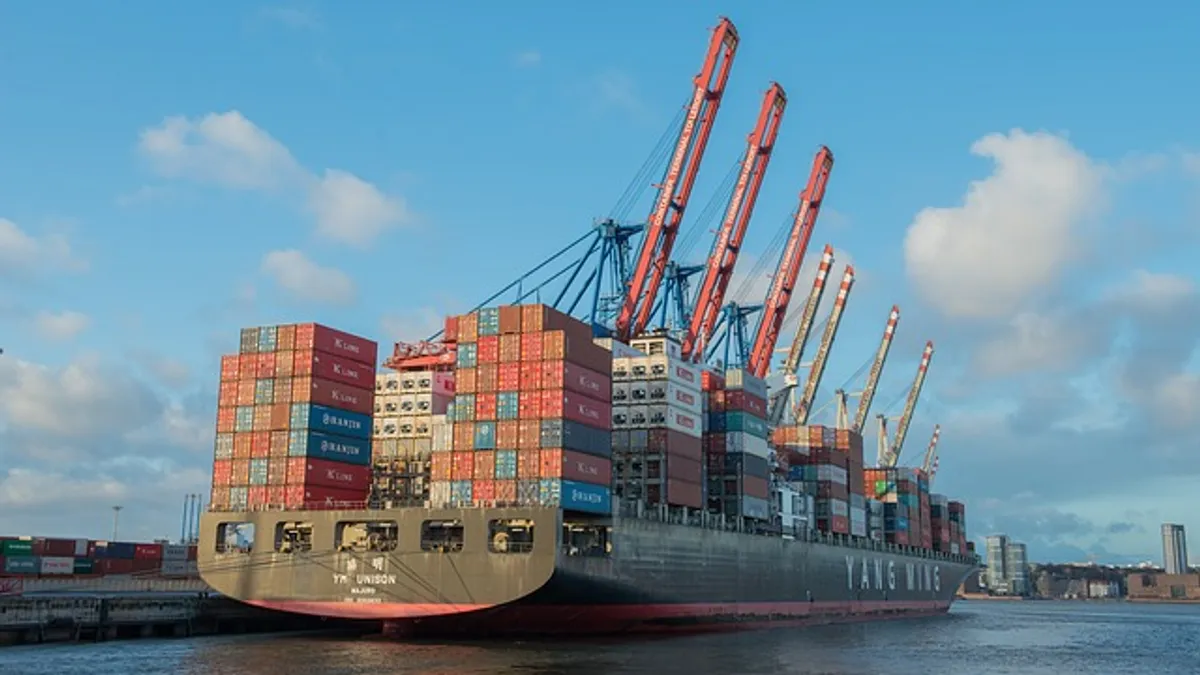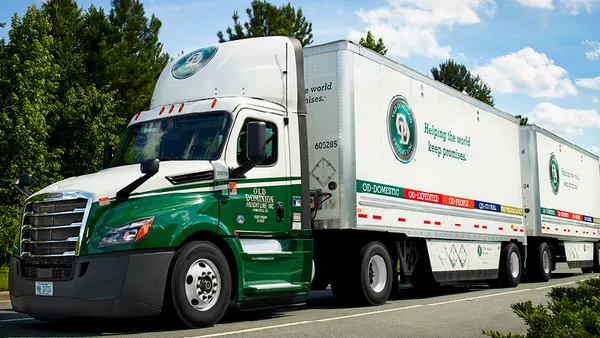Dive Brief:
- In the wake of the announcement of a new joint venture between Japan's three biggest shipping lines, industry leaders largely welcomed the pragmatism of the decision.
- Drewry noted the shipping industry's previous practice of undercutting pricing due to an excess of carriers was unhealthy and harmful for many carriers, and instead urged restructuring to focus on greater revenue intake.
- Similarly, a Maersk Line spokesman told Bloomberg consolidation will help relieve the struggling industry from overcapacity. Meanwhile, a CMA CGM executive told The Wall Street Journal small shipping lines are unlikely to survive in the current climate.
Dive Insight:
The need to restructure within the shipping business is becoming more common, as a recent merger between Japan's three biggest shipping lines shows.
But the lines are just the latest to engage in a major restructuring: Hyundai Merchant Marine, Rickmer's Maritime, Maersk Line and Hanjin Shipping are just some of the major shipping lines that have sought major changes to reduce operating costs and weather the economic slowdown.
In the face of declining revenue and with the specter of Hanjin's failure clouding outlooks, shipping lines are acting with foresight to prevent their own slump. However, overconfidence in previous years led to over-production in vessel orders which has led to sinking freight rates and decreased margins.
Maersk Line, for example, reported 11% lower revenues in Q3 compared to last year and an underlying loss of $122 million due to a 16% decrease in freight rates, according to the company's press release. However, the company included a silver lining in its report: Maersk Line gained 11% market share on its container volume transport, potentially driven by Hanjin's bankruptcy and alliance-based competitive advantages.
Conditions being what they are, the need to consolidate is becoming a requirement.













